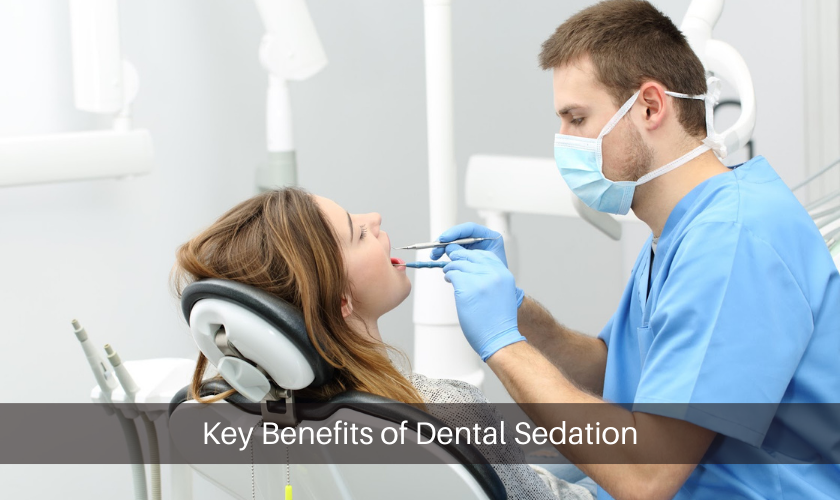
Key Benefits of Dental Sedation
Dental sedation is a form of anesthesia used to reduce patient discomfort during dental procedures. It works by numbing certain areas of the mouth so that patients can experience less pain or distress during their treatment. Sedation can help to reduce anxiety, improve comfort and make dental procedures more pleasant for many patients. In this blog, we will explore the key benefits of dental sedation and provide answers to frequently asked questions about the procedure.
Reduced Anxiety
Dental Fear is a very common issue that affects people all over the world. This fear can cause people to avoid seeking dental care, even when they may be in need of it. With dental sedation, anxiety can be significantly reduced and patients are able to relax during the procedure. This helps them to get through the appointment with ease and without feeling overwhelmed by their fear.
Comfort & Relaxation
Dentists use sedation to help make their patients more comfortable and relaxed during the procedure. Sedation can help reduce pain, making it easier for patients to sit through the appointment. It also helps to reduce anxiety so that they are able to remain calm throughout the procedure. Additionally, it has been found that dental treatments with sedation often take less time to complete.
Improved Safety
Dental sedation also helps to ensure patient safety. By minimizing anxiety and discomfort during a procedure, patients are more likely to remain still and follow instructions from their dentist. This can help reduce the risk of complications that can occur due to movement or improper instructions being followed.
Memory Loss
Another benefit of dental sedation is that it can cause temporary memory loss. This means that patients who have undergone a procedure with dental sedation may not remember as much of the experience, reducing any potential stress or anxiety they may feel about their appointment afterwards.
Better Outcomes
Dental sedation can also result in better dental outcomes. The relaxed state of the patient during the procedure makes it easier for the dentist to perform their job, leading to a higher success rate. Additionally, patients who are more relaxed and less anxious tend to be more cooperative, allowing for better treatments overall.
Improved Pain Management
Dental sedation can also help with pain management. By numbing certain areas of the mouth, patients are able to experience less discomfort during their procedure. This makes it easier for them to sit through the appointment and reduces their overall distress.
Reduced Risk of Injury
The relaxed state of the patient can also help to reduce the risk of injury during a procedure. By making it easier for the dentist to perform their job, they are able to work more accurately and safely, resulting in fewer mistakes and complications.
Quicker Recovery Times
Finally, dental sedation can help to reduce recovery times. Since the patient is more relaxed during the procedure, they are able to recover quicker and with less discomfort. This helps them to get back on their feet faster so that they can enjoy their results sooner.
FAQs
Q: Is dental sedation safe?
A: Yes, dental sedation is generally considered safe when administered by a qualified professional. However, it is important to discuss all risks and benefits with your dentist before undergoing any treatment.
Q: What types of sedation can be used for dental treatments?
A: There are several different types of sedation that can be used in dental treatments, including oral medication, nitrous oxide, and intravenous sedation.
Q: What are the side effects of dental sedation?
A: Common side effects of dental sedation include drowsiness, confusion, nausea, and vomiting. In rare cases, there may be a risk of serious complications such as an allergic reaction or respiratory depression. It is important to discuss any potential risks with your dentist before undergoing treatment.
Conclusion
Dental sedation can provide a number of key benefits for patients, including reduced anxiety, improved comfort and safety, better outcomes, improved pain management, reduced risk of injury, and quicker recovery times. It is important for patients to discuss their options with a qualified dentist before making any decisions about treatment.
